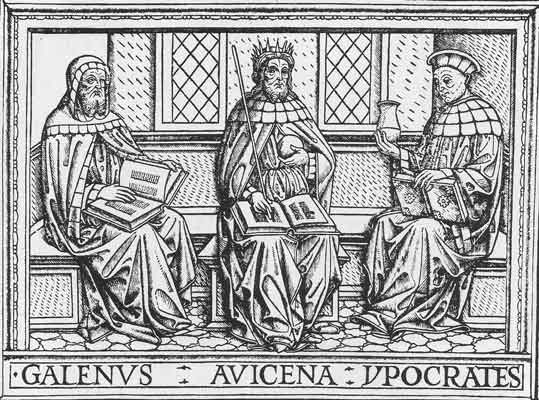

| Online: | |
| Visits: | |
| Stories: |
Galen: An Ancient Roman Forefather of Modern Psychology
By Adam J. Pearson

Galen of Pergamum was a Greek-speaking physician, surgeon, and philosopher in the Roman Empire, who was a massively-influential figure in the history of medicine. Galen was a physician to the Roman Emperors Marcus Aurelius and Commodus and created a powerful medical system that dominated Western medical thinking for 1,000 years. Fascinatingly, as it turns out, he was also an ancient Roman forefather of modern psychology.
Reading the views of early psychological theory he developed over 1,800 years ago reveals that he made some truly impressive contributions to a field that would only make serious developmental strides in the 19th to 21st centuries. Galen was leagues ahead of his time and even ahead of some of the false views that later psychologists would end up adopting in the 18th century. Rejecting the Greeks’ separation between mind and body, he saw the two as a single psychophysiological system, just as as contemporary psychology does today.
He rejected the mind-body problem by saying that the mind and body were one and that this would one day be empirically demonstrated through science. In short, Galen believed that bodily states could cause mental states and that mental disturbance could affect the health of the body, a view which we now know to be correct. Applying this theoretical view to clinical practice, Galen was a very early advocate of holistic medicine that combined psychosocial support with physical medical interventions.

Galen, Ibn Sina, and Hippocrates: The Three Giants of Ancient Western Medicine
In addition, Galen used his theory of the ‘four humours’ (blood, phleghm, black bile, and yellow bile), which he developed in his treatise The Nature of Man, to develop a typology of 9 temperaments or what he called ‘mixtures.’ This was essentially an early theory of personality psychology. Even more interestingly, however, Galen claimed that doctors could help people work on psychological challenges arising from disturbances in the body through means of medical therapies related to diet and pharmacology.
One of Galen’s most important contributions to the ancient history of modern psychology, however, is his treatise On the Diagnosis and Cure of the Soul’s Passion. This ancient Roman treatise is basically an early manual for psychotherapy! It recommends using “talk therapy” to prompt an individual to reveal their deepest passions and secrets, and eventually cure them of their mental disturbance. This Galenic innovation was an ancient forerunner of both Freudian psychoanalysis and modern psychotherapy.

This later depiction of Galen shows him using his ‘cupping’ technique for creating suction with a cup on the skin in order to, as Galen believed, draw toxins and excessive humours to the surface of the skin. This practice would be influential for 1,600 years after Galen and even survive as late as the 20th century in folk medicine.
Indeed, Galen himself became a specialist in stress disorders. In Epidemics 6, he offers a list of case-studies of patients with stress-related ailments. While the Greeks and Romans thought that people were physically disturbed while in love because they were possessed by the god of Love, Galen had another perspective: the ‘lovesick,’ he said, are having physical issues because they are stressed out! This, as in the case of unrequited lovers, he thought, explained why they showed many of the same symptoms as people suffering from other stress disorders.
Of course, Galen harboured many views that later turned out to be false; he falsely believed that the blood did not circulate, but rather that the veins acted like reservoirs from which the organs could ‘attract’ blood to themselves when they needed nourishment. However, it remains nonetheless true that he made profound contributions to the history of psychology that have not been widely recognized by many historians of psychology even today. Galen was one of the first to assert that psychology should be studied through empirical means and experiments that take physiology into account. Therefore, to those who believe that psychology only began in the 19th century, Galen offers a profound counterexample from over 1,600 years before the birth of Sigmund Freud.
Read More from Adam Pearson at http://philosophadam.wordpress.com/
Source: https://philosophadam.wordpress.com/2016/10/10/galen-an-ancient-roman-forefather-of-modern-psychology/



